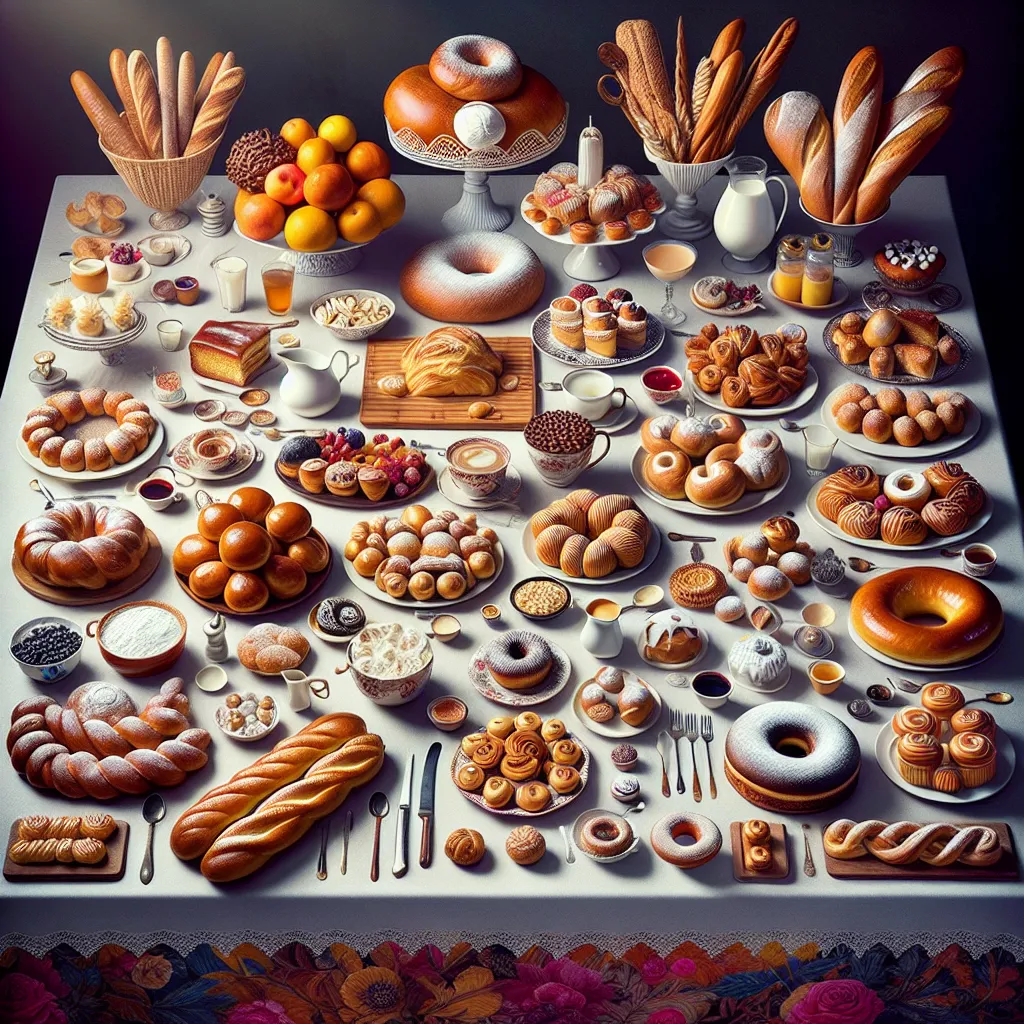The Art of Baking: From Ancient Traditions to Modern Techniques
Exploring the craft and science of baking offers a fascinating journey through the art of baking, from ancient traditions to modern techniques. Baking has been a fundamental part of human civilization for thousands of years, with archaeological evidence suggesting that ancient civilizations, such as the Egyptians and Romans, were skilled bakers. The craft of baking has evolved over time, with the advent of new ingredients, techniques, and tools.
Ancient baking traditions were often rooted in practicality and necessity, using simple ingredients like flour, water, and wild yeast to create bread. These traditions have been carried forward through generations, contributing to the rich tapestry of baking techniques and recipes around the world. The knowledge and expertise passed down through the ages form the foundation of modern baking.
Modern baking has embraced both the art and science of the craft. Bakers today not only draw from centuries-old traditions but also benefit from scientific advancements that have unlocked a deeper understanding of the chemical and physical processes involved in baking. From the precise measurements of ingredients to the understanding of how temperature and time impact the final product, baking has become a harmonious blend of tradition and innovation.
Furthermore, the art of baking has seen a resurgence in recent years, with a renewed appreciation for artisanal techniques, traditional recipes, and the use of high-quality, locally sourced ingredients. This trend reflects a desire to reconnect with the roots of baking and to savor the unique flavors and textures that can only be achieved through time-honored methods.
In conclusion, the art of baking encompasses a rich tapestry of ancient traditions and modern techniques, blending the wisdom of the past with the innovation of the present. This harmonious blend is what makes baking not only a science but also a deeply satisfying form of artistic expression.
The Science Behind the Perfect Bake: Exploring Ingredients and Reactions
Baking is not only an art but also a science. The process of transforming raw ingredients into delectable treats involves a complex interplay of various chemical reactions and physical changes. The science behind the perfect bake is a fascinating exploration of ingredients and their reactions. Understanding the role of each component is crucial in achieving the desired texture, flavor, and appearance of the final product.
Flour, for example, is a fundamental ingredient in baking. Its protein content, specifically gluten, plays a crucial role in providing structure and elasticity to the baked goods. Different types of flour contain varying levels of protein, impacting the final result. Furthermore, the interaction between flour and liquid activates the formation of gluten, which gives the baked goods their characteristic texture.
Sugars, such as granulated, brown, or powdered, not only sweeten the baked goods but also contribute to their tenderness, moisture retention, and browning. During the baking process, sugars undergo caramelization and the Maillard reaction, adding depth of flavor and appealing color to the final product.
Leavening agents, including baking powder, baking soda, and yeast, are responsible for creating a light and airy texture in baked goods. These agents release carbon dioxide gas, which forms bubbles in the batter or dough, leading to the rise and expansion of the baked products. The timing and interaction of these leavening agents with other ingredients are critical in achieving the desired volume and crumb structure.
In essence, successful baking is the result of understanding the intricate science behind the ingredients and their reactions. By mastering the principles of how various components interact and transform during the baking process, one can unlock the secrets to consistently achieving the perfect bake.
Mastering the Techniques: Tips for Perfecting Your Baking Skills
Mastering the techniques of baking is a delightful journey that combines the artistry of crafting delectable treats and the precision of scientific principles. Whether you are a novice baker or an experienced one looking to refine your skills, mastering the techniques of baking is essential for consistently achieving perfect results. Understanding the fundamentals of ingredient functions, temperature control, and proper mixing methods lays a strong foundation for honing your baking skills.
One of the key elements in perfecting your baking skills is to pay attention to the specifics of each recipe. Different recipes may require varying mixing methods, ingredient temperatures, or baking times. Familiarizing yourself with these nuances and understanding the science behind them will empower you to adapt and excel in your baking endeavors.
Furthermore, practicing precision in measurements and honing your ability to recognize the desired consistency of batters and doughs are integral to becoming a proficient baker. Additionally, exploring the effects of leavening agents and understanding the role of fats and liquids in recipes will enhance your comprehension of the baking process.
Experimentation and practice are also vital components of mastering the techniques of baking. Embrace each baking session as an opportunity to fine-tune your skills, learn from any mistakes, and celebrate your successes.
In essence, perfecting your baking skills involves a harmonious blend of art, science, and practice. By delving into the intricacies of baking and consistently refining your techniques, you can elevate your baking prowess and create irresistible treats that will delight the senses.
Baking Around the World: Global Influences on Baking Traditions
Baking is a truly global tradition that has been shaped by diverse cultures and culinary influences from around the world. From the rich spices of India to the delicate pastries of France, each region has contributed its own unique flavors and techniques to the craft of baking.
In France, the art of pastry-making has been perfected over centuries, giving rise to exquisite creations such as croissants, éclairs, and macarons. The emphasis on precision and finesse in French baking has set a standard for pastry chefs worldwide.
Meanwhile, in Italy, the tradition of baking has led to the creation of iconic treats like tiramisu, biscotti, and panettone. Italian baking is known for its use of high-quality, simple ingredients that result in flavorful and satisfying desserts.
Traveling to the Middle East, we encounter the rich, syrup-soaked pastries of baklava and the aromatic, spice-infused breads like pita and lavash. The influence of Middle Eastern baking can be seen in the popularity of these baked goods across the globe.
Furthermore, the vibrant spices and exotic flavors of India have made a significant impact on the world of baking. From the fragrant cardamom-scented cakes to the syrupy sweet gulab jamun, Indian baking is a celebration of bold and exciting flavors.
As we explore the global influences on baking traditions, it becomes clear that each culture brings its own unique ingredients, techniques, and flavors to the table, contributing to the rich tapestry of baking traditions around the world.

